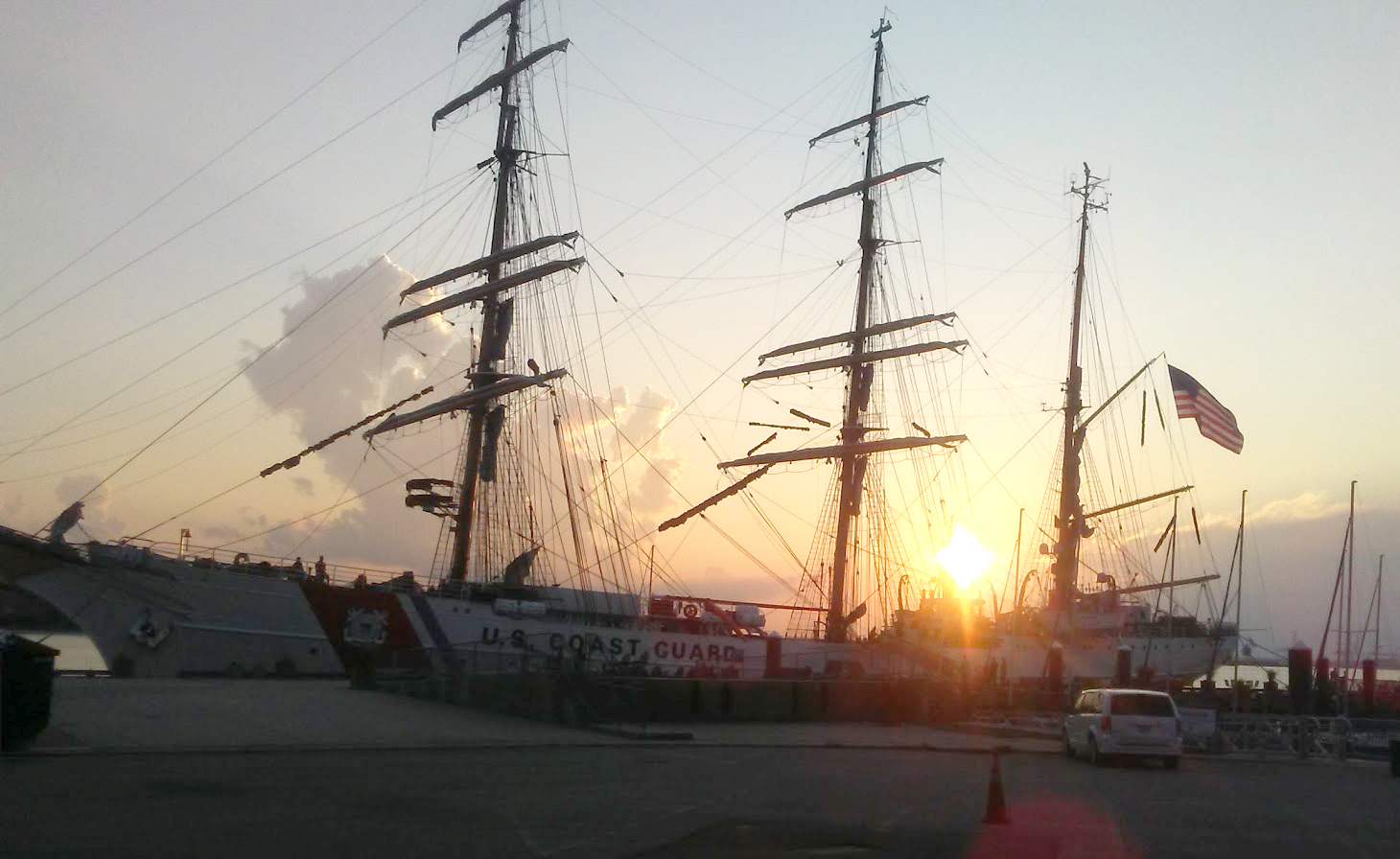Coast Guard to SeaDawg: Student Spotlight with Irissa Danke
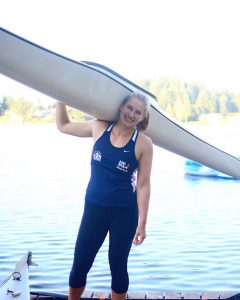
Born and raised in the Pacific Northwest, Irissa came to the University of Washington’s Marine Biology Program by way of the United States Coast Guard Academy. Irissa also made waves when she competed internationally at the Olympic Hopes Regatta for sprint kayaking on Team USA in Hungary and the Czech Republic. We recently caught up with Irissa to learn more about her unique career path, being a new student during a pandemic, and her research interests.
How was your experience in the U.S. Coast Guard Academy?
All throughout middle school, my sport was sprint kayaking. I got to spend hours out on the water every day on my kayak, and I just absolutely loved it. Seeing seals and all the other marine life is really what got me interested in the marine biology field. When I graduated high school, I decided to go to the Coast Guard Academy because of that love for the ocean, their marine biology program, and the sense of adventure.
The Coast Guard Academy is a very small school with only about 1000 students total, but they did have a marine and environmental science program. I was there for just over a year. The first summer was an introductory boot camp, introducing you to military life. During the school year, I got to take some classes that you really couldn’t get anywhere else—like Introduction to Navigation. I got to learn a lot about different roles on a ship and sailing.
I think my biggest takeaway from the Academy was my second summer. They send you out into the fleet so that you can see what the real Coast Guard is like. I was sent to a station up in Alaska, and it was really cool to see what actual Coast Guard operations are and to explore the area. The second half of that summer, my whole class sailed around Europe and then across the Atlantic Ocean. We made a bunch of stops in Europe: France, the Netherlands, the Azores off the coast of Portugal. Then, our longest stretch was from the Azores to Bermuda, which took 12 days. It was an experience I will never forget. Being out in the middle of the Atlantic also just made me fall in love with the ocean more. It was pretty humbling looking in every single direction and not seeing any land at all.
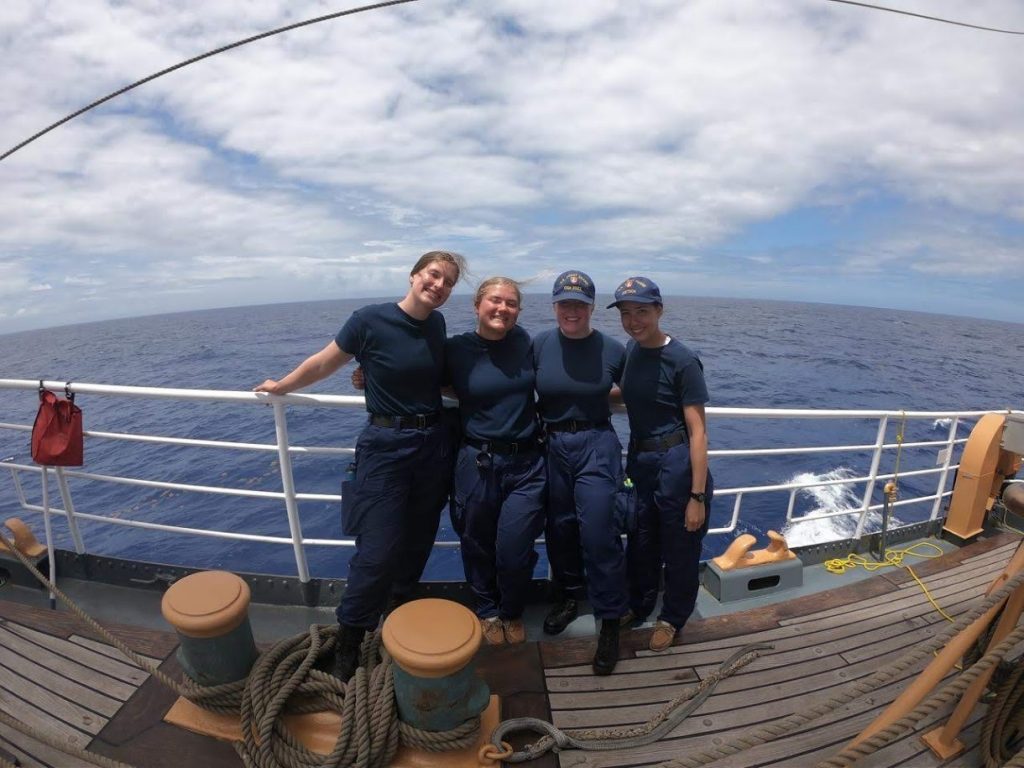
Why did you transfer to the University of Washington?
I ended up deciding the Academy wasn’t the right place for me long term. There’s a seven-year commitment to serve in the Coast Guard after graduation. I just really wanted to focus on marine biology instead of management as I would have in the Coast Guard. I grew up in Washington state, and both my mom and grandma went to UW, so I knew what a great school it was. It was actually my second choice (behind the Coast Guard Academy) coming out of high school. I transferred into UW last winter quarter, so I had only one quarter in person before COVID hit. It was a huge transition coming from a really small school to UW’s 700-person lecture halls, though I loved how small the marine biology program was and meeting people who also love the ocean. Even though most of my time at UW has been online, I’ve had amazing professors and really exciting electives.
Do you see any of the specific skills you picked up at the Coast Guard Academy, like navigation, translating to your future career in marine biology?
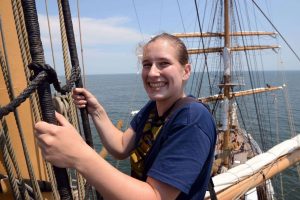
After I graduate, I’m hoping to have the option to do some fieldwork before graduate school. When I envision my future, I want to be out on the water instead of sitting at a desk every day. I am really hopeful that those boating skills will come in handy. I’ve seen them as prerequisites for internships and field work positions so I’m excited to have that background and then learn more from there.
How has the pandemic impacted your transfer to UW and meeting your fellow marine biology students?
I was really lucky because I’m from this area. I did know some people already at UW, which I think did make the transfer process a lot easier, especially with COVID coming two months later. It would have been hard if I didn’t know anyone. It’s nice that the marine biology program is pretty small and that there are things like the active Discord channel where you can meet people. Now that I’ve been in the program for multiple quarters, I’ve seen the same people in the classes over and over, especially now that I’m in the marine biology classes. Even though Zoom breakout rooms aren’t the same as a classroom, I feel like I still got to have some conversations with my classmates, and I’ve gotten to know them better. I also have been involved with SeaDawgs, the marine biology club, and am getting to know other people who are interested in the ocean.
What are your research interests?
I’m interested in how marine organisms are impacted by climate change and humans, basically looking at how they can adapt, which is still very broad. Our impact on marine organisms is something that really interests me. After taking both Dr. Chelsea Wood’s Parasite Ecology course and Dr. Kristin Laidre’s Polar Marine Science course, I’ve become really interested in those fields as well. I’m trying to think of a way to combine the two. I also got some experience with marine mammals in an internship last summer, and now, I’m doing some research with Dr. Kate Stafford on fin whale acoustics in the southern Atlantic ocean. That’s been pretty cool too and it’s also getting me towards that polar realm.
What was your internship experience like?
First, I want to say the marine biology department is awesome. Joe is so great—he sends so much information about internships. I’ve heard from some of my friends in other departments and majors that they don’t get that same support from their advisers, so it’s a lot harder for them. I’m really just happy to be in the marine biology department with such a great adviser!
Last summer, I was an intern with the Cascadia Research Collective (CRC) down in Olympia. It is a nonprofit that does research related to marine mammals, specifically cetaceans. Most of what I did during the summer was identify whales from photographs, mostly gray whales, but also blues and humpbacks. CRC has a huge database; I think the gray whale database had just over 2000 identified individuals. You had to go one at a time through all of the pictures and match them. It was hard, looking for the tiniest little details, but then once you found the match it was so rewarding. The photos help researchers know where individuals and populations are throughout the years and how their distribution is changing. I enjoyed learning about whale behavior and how to identify them. I also got to do some data management and harbor seal counts out at local beaches. It was really fun to go out there and spend the whole day just counting the seals.
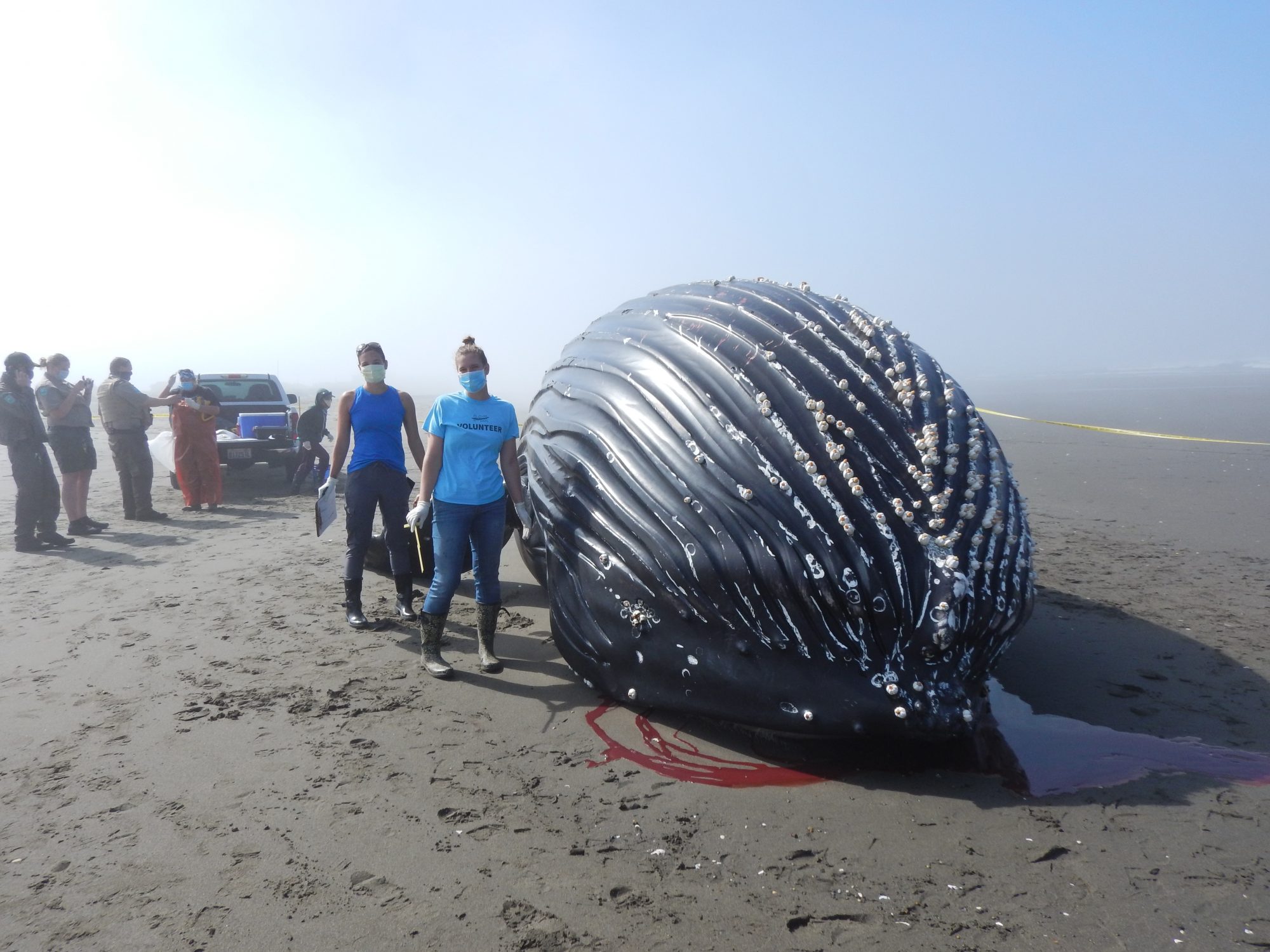
What are you looking forward to most about getting back into the classroom?
I’m really excited for labs—it’s one of my favorite things about science. Online labs have been a bit disappointing; the professors are doing the best they can—I totally understand—but that’s one thing I’m really excited about. I’m also really excited to get to know more of the students in the marine biology department. We actually had the first in-person club meeting for SeaDawgs the other day, and there were so many people that I know, because I’ve been in classes with them for the past year, but have never actually met in-person before. I’m also really looking forward to going up to Friday Harbor Labs to complete the research credit requirement for the major. Everyone that I’ve talked to that’s gone up has been raving about it!
Where do you see your career taking you next?
That has been a question I’ve been asking myself so many times over the past few months. I’m going into my senior year, so I feel like I still have a little bit of time. I’m still exploring options and looking at different graduate programs. I think I’ll definitely go to graduate school at some point, I just don’t know if it will be straight out of undergrad. Right now, I’m hoping to do a fieldwork position for a year in between. I’m also really interested in going to graduate school abroad so I’ve been looking into that possibility, which is exciting.
